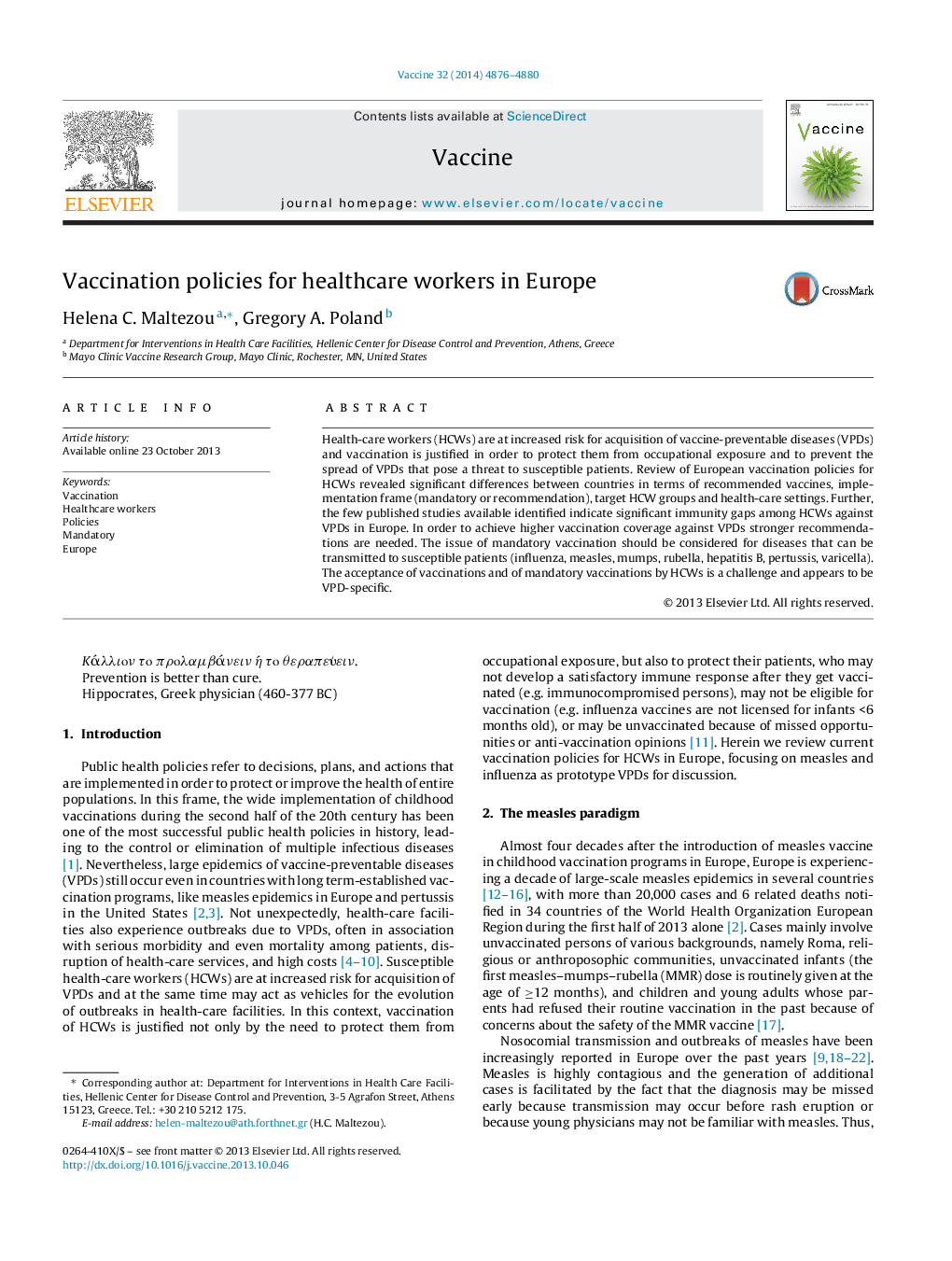| Article ID | Journal | Published Year | Pages | File Type |
|---|---|---|---|---|
| 2402238 | Vaccine | 2014 | 5 Pages |
•Country-to-country differences in terms of vaccinations for HCWs exist in Europe.•Mandatory vaccination has been adopted by very few countries and for very limited indications.•There are significant immunity gaps among HCWs against VPDs in Europe.•Mandatory vaccination should be considered for HCWs in Europe.
Health-care workers (HCWs) are at increased risk for acquisition of vaccine-preventable diseases (VPDs) and vaccination is justified in order to protect them from occupational exposure and to prevent the spread of VPDs that pose a threat to susceptible patients. Review of European vaccination policies for HCWs revealed significant differences between countries in terms of recommended vaccines, implementation frame (mandatory or recommendation), target HCW groups and health-care settings. Further, the few published studies available identified indicate significant immunity gaps among HCWs against VPDs in Europe. In order to achieve higher vaccination coverage against VPDs stronger recommendations are needed. The issue of mandatory vaccination should be considered for diseases that can be transmitted to susceptible patients (influenza, measles, mumps, rubella, hepatitis B, pertussis, varicella). The acceptance of vaccinations and of mandatory vaccinations by HCWs is a challenge and appears to be VPD-specific.
